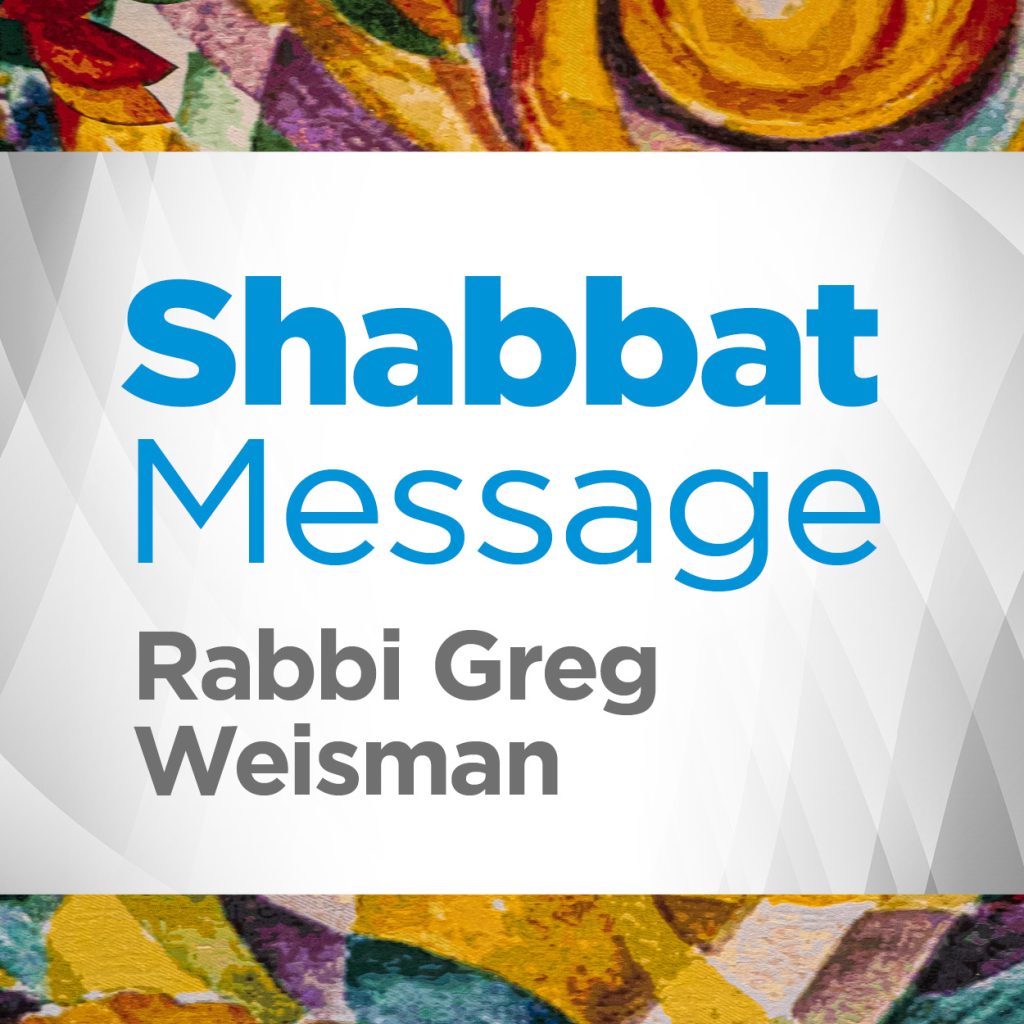“I lift my eyes to the mountain. Where does my help come from?”
– Psalm 121
For the past six days, we have all been looking for help.
This was supposed to be a week of rebirth and renewal. Celebrating Simchat Torah and starting a new cycle of the reading of Torah normally fills us with feelings of opportunity and potential. Instead, we have been carrying the anger, the pain, the grief, and the sadness of the devastating attack on Israel last weekend. Seeing the images and videos of Israeli men, women, children, and elderly has been harrowing, and our hearts are with the hundreds of thousands of IDF soldiers who are being called into duty, along with their families and loved ones.
Since last Shabbat, as I have been at the temple, at communal events, meeting with members of our congregation; I have asked and been asked, “How are you?” My reflex is, and continues to be, to say “I’m OK.” But I’m not. I am filled with such a deep and challenging set of emotions, like anger and sadness, concern for those in Israel, grief for those who have been lost. And it’s not just me. All of us are feeling these same big feelings, all at the same time. In ordinary circumstances, if a person or a family is in the shadow of a loss, those around them who are otherwise well, can step in and support, to try to lighten their burden with words or deeds of kindness. This is what we do when we show up to a funeral or a shiva house. But when the entire community is mired in the same grief, we cannot rely on others to help lighten our load; their load is just as burdensome. We need a different strategy. We need to lean on one another, so that maybe together we can carry the immense pain that we collectively feel.
Taking care of each other in this moment is our responsibility, a responsibility that emanates from this week’s Torah portion.
Parashat B’reishit, the first portion of the Torah, begins with the creation, but continues to tell the story of the first generation of human beings. Adam and Eve had two sons, Cain and Abel, and tragically this first portion also introduces the ideas of death and homicide. Angry at God for not appreciating his contributions, and in jealousy of his brother who did earn God’s favor, Cain kills Abel. In an instant, the entire family structure is shattered. Adam and Eve lose one son, and the other must be sent away for his transgressions. Cain was not only guilty of fratricide, but also of indifference. When the Holy One asked Cain where his brother was, his reply, “Am I my brother’s keeper?” told God everything we needed to know about Cain.
Are we our siblings’ keepers? From our first Torah portion we learn that the answer is an unqualified yes. How can we fulfill that responsibility? Wondering how to do that has made this week all the more challenging. I know I am their keeper, just as I know so deep in my heart that Israel’s and Israelis’ presence on this earth in no small part keeps Jews safe around the world. Knowing how much pain Israelis are in right now, I have been struggling to feel like I am up to the task.
I’m struggling because what I know I can do feels so inconsequential. Like many of you I have friends and family in Israel, and our hearts ache with them. The Jewish world has organized so quickly to rise to Israel’s support. Massive amounts of tzedakah have been and will be collected, both by large organizations and by friend’s, neighbor’s, cousins in Israel who are buying supplies for soldiers called back to service. Soldiers who having been called into service arrived at the airport wearing flip-flops and a t-shirt with no time to go home and get their gear. We have gathered in events of solidarity, to show our siblings in Israel that we love them, that we are thinking of them, that we support them, that we care about them. Gathering as a community, as our congregation did last Sunday, as the greater Boca Raton Jewish community did on Tuesday, as we will this evening for Tot Shabbat and Shabbat services, is a way to show our solidarity with Am Yisrael. I can’t wait to be with our youngest members tonight and sing Am Yisrael Chai and Hatikvah with them. At our evening Shabbat service, when we offer prayers for the safe return of the captives, for the soldiers in the IDF, and for the State as a whole, we will channel our spiritual energy, asking the Holy One to guard over them and to be their keepers. And, we have been watching and reading the news incessantly, wanting to be aware of the latest events and preparing ourselves to be Israel’s spokespeople to those who might question her motives or her right to defend herself in the wake of a terrorist attack.
While all of that is extremely important, I still feel like I cannot do enough. I feel like all that I can do is not nearly enough to fulfill my obligation to take care of my fellow Jews, and that frustration and sense of shortcoming makes it worse.
If I am honest with myself, I know that since last Saturday I have not been the best version of myself. I am tired from sleepless nights, caused by checking my phone for updates at 2:00 am. I have been carrying my emotions of the week with me, using all my strength to keep them from rushing out while I have been going about my week. I know that at times, perhaps because I am holding them too tightly, or in other times because I let too much out at once, my reactions to others have not been the best. I imagine many of you have had similar experiences. Among all the things we ask of each other, among all the ways we can guard and keep each other as siblings, giving each other the grace and benefit of the doubt is incredibly important.
In Torah, after Adam and Eve lost their two sons, their third child Seth entered the scene, and humanity continued through him. Despite their grief, for Adam and Eve, there was a tomorrow, there was a future to be had. From that we can take some solace. Tomorrow will come, next week will come, next year will come. We pray to the Holy One that better times… times of peace and prosperity, are ahead of us. We pray that the vision of Isaiah, of swords turned into plowshares and the end of war, will come to fruition. We pray that as we look back to the story of creation, that as we enter into this first Shabbat of this reading of Torah, that we can fulfill the idea of shavat va-yinafash, that we can take this day to rest, to refresh ourselves. We have much still to do, but together Am Yisrael Chai, the people and the State of Israel will live and endure.
Shabbat Shalom,
Rabbi Greg Weisman









